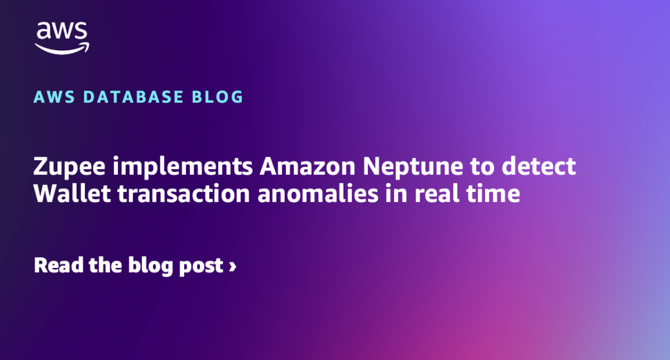Amazon
1M
117

Image Credit: Amazon
Zupee implements Amazon Neptune to detect Wallet transaction anomalies in real time
- Zupee, a skill-based gaming platform in India, integrated Amazon Neptune Database to detect anomalies in real-time for wallet transactions.
- Their initial solution using a relational database showed limitations when processing millions of transactions, leading them to adopt a graph-based approach with Amazon Neptune.
- Graph databases excel in managing interconnected data efficiently, allowing for complex relationship analysis without predefined joins.
- Zupee leveraged Neptune's capabilities to process over 1 million wallet transactions daily, identifying suspicious patterns and flagging anomalies.
- The graph data model in Neptune helps Zupee monitor wallet transactions by creating clusters of users and detecting unusual transaction behaviors.
- Using Union Find algorithm, Zupee efficiently grouped associations within the platform, uncovering complex relationships.
- Neptune's architecture enabled Zupee to detect duplicate accounts, shared payment instruments, and calculate appropriate incentives based on user authenticity.
- Zupee optimized costs by rewarding genuine users and adjusting incentives for accounts with anomalies, ensuring fair distribution.
- With Neptune, Zupee achieved less than a 50-millisecond response time for anomaly detection and now manages a vast network of over 5 million interconnected nodes and edges.
- Authors Aman Kumar Bahl, Apoorv Mathur from Zupee, and Ajeet Dubey from AWS played key roles in leading data engineering, architecture design, and cloud-focused solutions for this integration.
Read Full Article
7 Likes
For uninterrupted reading, download the app